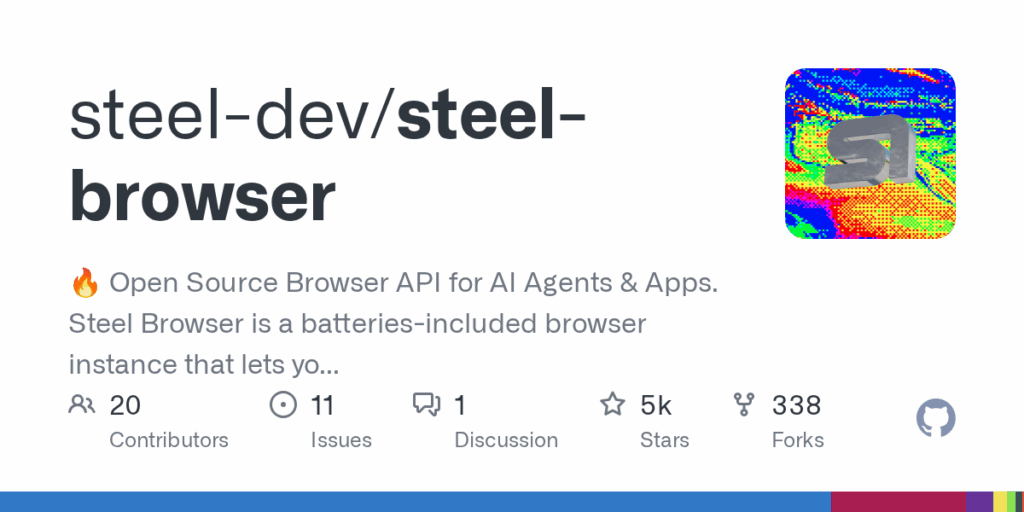steel browser
Basic Information
Steel Browser is an open-source browser API and server designed to let developers build AI apps and live web agents that interact with websites programmatically. The repo provides a hosted browser instance and REST API that manage browser processes, pages, sessions, cookies and storage so teams do not have to build automation infrastructure from scratch. It supports connecting via Puppeteer, Playwright, or Selenium and exposes session control endpoints for launching browsers with custom options, proxy settings, and extensions. It also offers quick, read-only actions for scraping, screenshots, and PDFs, typed Node and Python SDKs that wrap the REST API, a UI for session inspection, and Docker and local Node workflows for running the server. The project targets developers and teams building web automation, data extraction, or agent-driven browsing workflows and aims to simplify stateful browsing and browser lifecycle management.








